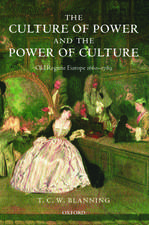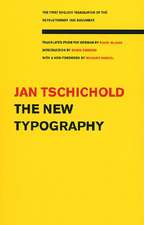Slavs in Post-Nazi Austria: Carinthian Slovenes and the Politics of Assimilation, 1945-1960
Autor Dr Robert Knighten Limba Engleză Paperback – 22 aug 2018
| Toate formatele și edițiile | Preț | Express |
|---|---|---|
| Paperback (1) | 237.93 lei 6-8 săpt. | |
| Bloomsbury Publishing – 22 aug 2018 | 237.93 lei 6-8 săpt. | |
| Hardback (1) | 773.81 lei 6-8 săpt. | |
| Bloomsbury Publishing – 8 feb 2017 | 773.81 lei 6-8 săpt. |
Preț: 237.93 lei
Preț vechi: 305.84 lei
-22% Nou
Puncte Express: 357
Preț estimativ în valută:
45.53€ • 47.66$ • 37.67£
45.53€ • 47.66$ • 37.67£
Carte tipărită la comandă
Livrare economică 05-19 aprilie
Preluare comenzi: 021 569.72.76
Specificații
ISBN-13: 9781350082618
ISBN-10: 1350082619
Pagini: 264
Dimensiuni: 156 x 234 mm
Greutate: 0.37 kg
Ediția:NIPPOD
Editura: Bloomsbury Publishing
Colecția Bloomsbury Academic
Locul publicării:London, United Kingdom
ISBN-10: 1350082619
Pagini: 264
Dimensiuni: 156 x 234 mm
Greutate: 0.37 kg
Ediția:NIPPOD
Editura: Bloomsbury Publishing
Colecția Bloomsbury Academic
Locul publicării:London, United Kingdom
Caracteristici
Valuable case study which reflects wider concerns about the impact of Nazism on postwar Europe
Notă biografică
Robert Knight is Senior Lecturer in International History at Loughborough University, UK. He is the editor of Ethnicity, Nationalism and the European Cold War (Bloomsbury, 2012).
Cuprins
AcknowledgmentsNote on SloveneList of AbbreviationsIntroduction1. Assimilation and Coercion2. Provincial politics 3. Cold War politics4. Lobbying against Slovene5. The demolition of the bilingual school 1958-9ConclusionNotesAppendix I - Slovene and German speakers in Southern Carinthia, 1945-1961Sources and BibliographyIndex
Recenzii
The volume is extremely well researched, drawing material from more than 15 archives in Germany, Austria, and the former Yugoslavia, oral histories, numerous periodicals, and no fewer than 80 published, primary sources . [It contributes] much-needed insight into Austria's perception and place as western Cold War ally and how that status shaped Austrian reception to the continuities and contours of Nazism that impacted the Slovene minority.
Robert Knight has written a passionate, much needed and readable book.
Robert Knight's engrossing new books [...] provides important insights into the history of modern Austria ... Knight's analysis, based on extensive archival and printed sources, is meticulous and judicious, and based on a profound understanding of the deep historical context.
[An] excellent study that profoundly questions some theses of Austrian historians.
Slavs in Post-Nazi Austria provides a shrewd and insightful analysis of the methods by which the Austrian Republic dealt with the pressures of pro-German right-wing lobbying groups and protestors seeking to curtail Slovenian language rights and bilingual educational opportunities in the southern border province of Carinthia in the aftermath of collapse of Nazi rule in 1945 and the onset of the Cold War. The book is a study of remarkable political continuities over one hundred years of modern Austrian history
Robert Knight's exemplary study of the political battles over the national and linguistic status of Slovene in post-war Austria analyses domestic events following the School Decree of 1945 which was originally designed to introduce bilingualism into Carinthian schools. The author's extensive and meticulous research also widens the discussion to examine the practical problems of Austrian de-nazification and the 'victimhood thesis' as German nationalists inflated the threat of Yugoslav intervention. This is essential reading for serious students of post-war Europe.
Robert Knight's compelling account of ethnic tensions, diplomatic game-playing and political chicanery at the crossroads of Cold-War Europe reflects in microcosm the issues facing the continent in the aftermath of Nazism. It contributes enormously to our knowledge and understanding of nationality politics in central Europe, and at the same time has a striking contemporary resonance. This book will be a valuable point of reference both for students and for scholars working in the field.
Robert Knight's study provides important new insights on Cold War diplomacy, internal Austrian politics, and the struggle to negotiate a State Treaty. Based on meticulous archival research in the United Kingdom, Austria, Slovenia, and Germany, as well as a mastery of the literature, Knight's outstanding study casts light on the resurgence of ethnic and religious tensions in the 21st century.
Why should we care about the twentieth-century history of the little-known Austrian province of Carinthia and the treatment of its forgotten, beleaguered Slovene-speaking minority? If the question were posed in this manner, historian Robert Knight has given us an entire book of very good reasons, which should attract the interdisciplinary interest of, among others, historians, experts in education, and contemporary political watchers worried about Europe's dangerous inability to accommodate forced migrants and refugees. One test of a strong regional history is its ability to connect with wider national, continental, and global trends. On this level, and others, Knight's work has given us much to ponder.
Robert Knight has written a passionate, much needed and readable book.
Robert Knight's engrossing new books [...] provides important insights into the history of modern Austria ... Knight's analysis, based on extensive archival and printed sources, is meticulous and judicious, and based on a profound understanding of the deep historical context.
[An] excellent study that profoundly questions some theses of Austrian historians.
Slavs in Post-Nazi Austria provides a shrewd and insightful analysis of the methods by which the Austrian Republic dealt with the pressures of pro-German right-wing lobbying groups and protestors seeking to curtail Slovenian language rights and bilingual educational opportunities in the southern border province of Carinthia in the aftermath of collapse of Nazi rule in 1945 and the onset of the Cold War. The book is a study of remarkable political continuities over one hundred years of modern Austrian history
Robert Knight's exemplary study of the political battles over the national and linguistic status of Slovene in post-war Austria analyses domestic events following the School Decree of 1945 which was originally designed to introduce bilingualism into Carinthian schools. The author's extensive and meticulous research also widens the discussion to examine the practical problems of Austrian de-nazification and the 'victimhood thesis' as German nationalists inflated the threat of Yugoslav intervention. This is essential reading for serious students of post-war Europe.
Robert Knight's compelling account of ethnic tensions, diplomatic game-playing and political chicanery at the crossroads of Cold-War Europe reflects in microcosm the issues facing the continent in the aftermath of Nazism. It contributes enormously to our knowledge and understanding of nationality politics in central Europe, and at the same time has a striking contemporary resonance. This book will be a valuable point of reference both for students and for scholars working in the field.
Robert Knight's study provides important new insights on Cold War diplomacy, internal Austrian politics, and the struggle to negotiate a State Treaty. Based on meticulous archival research in the United Kingdom, Austria, Slovenia, and Germany, as well as a mastery of the literature, Knight's outstanding study casts light on the resurgence of ethnic and religious tensions in the 21st century.
Why should we care about the twentieth-century history of the little-known Austrian province of Carinthia and the treatment of its forgotten, beleaguered Slovene-speaking minority? If the question were posed in this manner, historian Robert Knight has given us an entire book of very good reasons, which should attract the interdisciplinary interest of, among others, historians, experts in education, and contemporary political watchers worried about Europe's dangerous inability to accommodate forced migrants and refugees. One test of a strong regional history is its ability to connect with wider national, continental, and global trends. On this level, and others, Knight's work has given us much to ponder.










